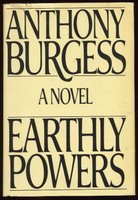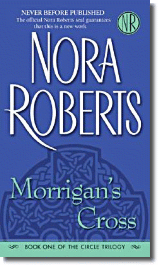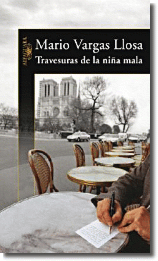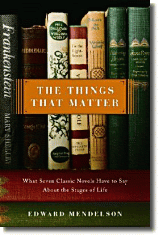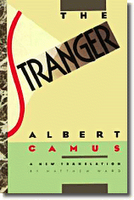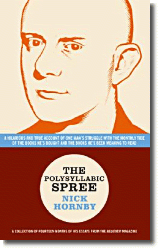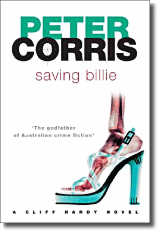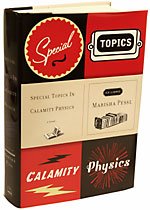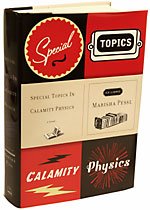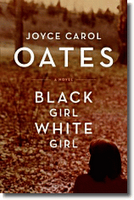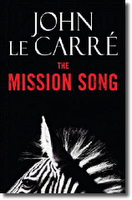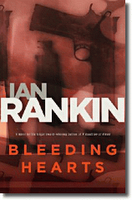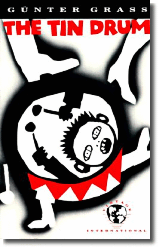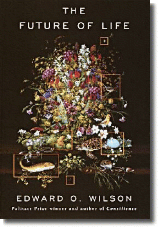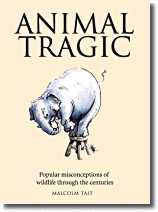This week
David Ignatius of the
Washington Post proposed a question to some of his international associates: "What one book would you suggest to summer readers and why?"
Michael Young, the opinion editor and a columnist for Lebanon’s
The Daily Star and a contributing editor at
Reason magazine, responded

from Beirut. In part:
...if I had to recommend the mother of all summer books, blending humor and drama, fantastic prose and all the other qualities publishers will splash across a cover, I would recommend Evelyn Waugh's The Sword of Honor Trilogy (Men at Arms, Officers and Gentlemen, and Unconditional Surrender). Probably the best opening pages I've ever read followed by a dark middle, and a compassionate equilibrium returning at the end.
Bashir Goth, a veteran journalist, the first Somali blogger and editor of a leading news website, replied (with a "Somalia/United Arab Emirates" dateline):
In a region living with the stigma of terrorism, I recently read one refreshing book that portrays the Arabs as just ordinary people who are keen to achieve prosperity through hard work and business acumen. With its English version expected soon, My Vision, by General Sheikh Mohammed bin Rashid Al Maktoum, UAE Vice President and Ruler of Dubai, sums up the story that turned Dubai into a world metropolitan where all cultures and races rub shoulders with only one common goal in mind--to make profit. (Click here to read the rest of his reply.)
Mahmoud Sabit is a historian and an authority on Egypt’s 19th century political reforms. He responded from Cairo:
If I had to choose one book with which to spend my vacation, I would want something escapist, but not fictional--a sort of analogy for today. The book would be A Distant Mirror: The  Calamitous 14th Century by Barbara Tuchman.
Calamitous 14th Century by Barbara Tuchman.
It certainly feels escapist as far as it goes. It recounts events from seven hundred years ago. Yet it's definitely not fictional. I usually find non-fictional events far more fascinating than pure fiction, possibly because reality is far more strange and more fantastic than a fictional narrative. It's also informative as it profiles a human condition, and human reactions to extraordinary events, filled as it is with examples of human fortitude, and human endurance against unimaginable odds. It's entertaining. What after all are we entertained by? Intrigue, action, love, outright evil and outright good, bliss and pain in equal measure, yes it is entertaining. There are of course modern analogies: greed, piety, cruelty, compassion, deep love, and bitter hatred, in short all those personality traits that we recognize as so very human. (Click here to read the rest of his reply.)
Mubashar Jawed Akbar is a leading Indian journalist and author. He's the founder and

editor-in-chief of
The Asian Age, a daily multi-edition Indian newspaper with a global perspective. From New Delhi, India, he wrote:
Alternatively the question could be framed thus: The British authorities permit you to carry one book in your assigned plastic bag on an air journey. Which one book would you carry on-board? In either scenario, dream-holiday or nightmare, the book I would recommend is any Jeeves-Bertie Wooster novel by P.G. Wodehouse (Right Ho, Jeeves is at the top of my list). (Click here to read the rest of his reply.)
Leon Krauze, a Mexican blogger and a founder of
letraslibres.com, replied from Mexico City:
 It certainly isn't light summer reading, but I highly recommend Ron Suskind's new book, The One Percent Doctrine. Suskind's honest--sometimes even brutal--account of American foreign policy after 9/11 is indispensable for an understanding of how the world has worked for the last few years. I tend to agree with Ian McEwan, who, after what happened in New York and Washington, decided that pure fiction was no longer entirely appropriate. This world of ours begs to be understood rather that dramatized. (Krauze allowed himself to recommend a book of poetry as well.)
It certainly isn't light summer reading, but I highly recommend Ron Suskind's new book, The One Percent Doctrine. Suskind's honest--sometimes even brutal--account of American foreign policy after 9/11 is indispensable for an understanding of how the world has worked for the last few years. I tend to agree with Ian McEwan, who, after what happened in New York and Washington, decided that pure fiction was no longer entirely appropriate. This world of ours begs to be understood rather that dramatized. (Krauze allowed himself to recommend a book of poetry as well.)
Miklós Vámos, a Hungarian novelist, screenwriter and talk show host,
recommended a book that regular blog readers may have heard enough about already. Click
here to read about his recommendation. He also puts in a plug for his own latest book (but does so with charm).
Daoud Kuttab, a Palestinian journalist and the director of the Institute of Modern Media at Al Quds University in Ramallah, does not recommend a book. Click
here to read why not.
--Marshal Zeringue
 To do my part to sell readers on Alan Brown's first novel, Audrey Hepburn's Neck (1996), I've got a fresh post up at Spot-on.
To do my part to sell readers on Alan Brown's first novel, Audrey Hepburn's Neck (1996), I've got a fresh post up at Spot-on.